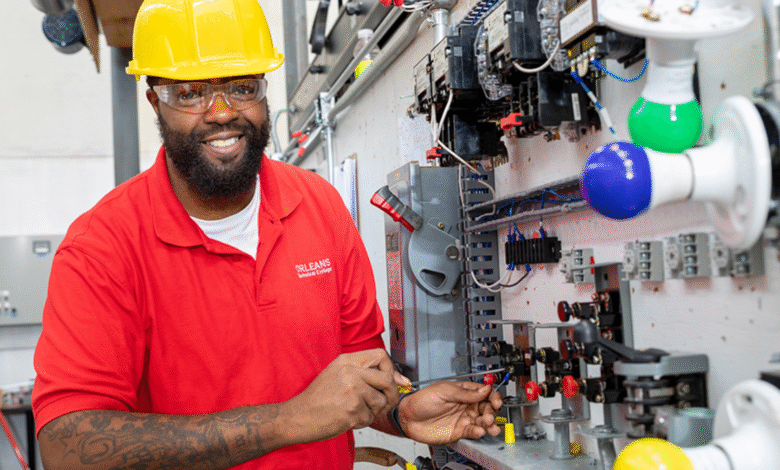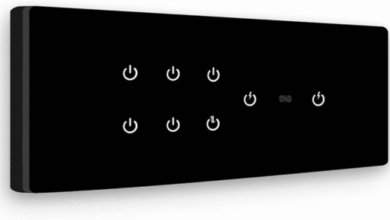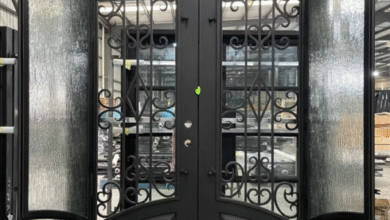The Unsung Power Behind Every Business: Why Commercial Electricians Matter More Than You Think

Walk into a well-lit office, a buzzing café, or a fully operational warehouse, and there’s something most people won’t notice—but they should. It’s not the floors, or the paint, or the signage. It’s the power. Electricity is the lifeblood of every modern business, from the smallest corner shop to the largest manufacturing plant. And keeping that electricity flowing safely and reliably? That’s where commercial electricians quietly save the day, every single day.
Not All Electricians Wear the Same Tools
It might be tempting to think of all electricians as the same: wires, outlets, circuits, done. But the truth is, there’s a world of difference between the work done in your kitchen and the wiring behind a commercial freezer, data center, or hospital ICU. Commercial spaces are more complex, heavily regulated, and—frankly—way less forgiving of mistakes.
That’s where the commercial electrician comes in. These pros don’t just fix things when they break. They design systems that work, stay safe under pressure, and scale up with your business as it grows. From high-voltage distribution panels to emergency power backup systems, they deal with the real heavy lifting behind your operations.
Business Runs on Power—And Timing
Ever been in a store during a blackout? Lights flicker, registers die, and within seconds, customers start heading for the exits. In business, time is money, and power loss isn’t just inconvenient—it’s expensive. Every minute counts, whether you’re running a restaurant kitchen, managing an office floor, or hosting a conference in a hotel ballroom.
Commercial electricians know this. They don’t just respond quickly—they think ahead. Preventative maintenance, smart system design, surge protection, and redundancy planning aren’t extras. They’re the baseline. Good electricians help businesses avoid downtime, not just recover from it.
Safety Isn’t a Buzzword—It’s the Blueprint
Here’s something a lot of business owners underestimate: the electrical codes governing commercial spaces are strict for a reason. High foot traffic. Expensive equipment. The risk to public safety. It’s all magnified when you’re dealing with commercial power needs.
A poorly wired circuit in a break room might trip a breaker in your house. In a business, it might shut down half a floor—or worse, start a fire. That’s why working with a qualified commercial electrician isn’t a luxury—it’s non-negotiable.
They know the codes, keep up with updates, and do the job right the first time. Because when lives, reputations, and liability are on the line, “good enough” isn’t good enough.
Complexity? Bring It On.
Think about what a commercial space needs: lighting, HVAC systems, security alarms, access control, fire suppression, server racks, backup generators, and often specialty equipment tailored to the business. Every one of these has unique electrical demands. And all of them have to work together.
This isn’t a job for guesswork. It’s about system integration—designing electrical layouts that meet current needs and anticipate future ones. Commercial electricians are planners and problem-solvers. They map out solutions with the precision of engineers and the creativity of builders.
They’re also collaborators. Whether they’re working with architects, contractors, city inspectors, or IT teams, they know how to coordinate. That’s what makes complex commercial projects flow instead of stall.
Custom Solutions for Every Industry
A great commercial electrician doesn’t treat every job the same—because no two industries are the same. What works in a retail store won’t work in a medical clinic or a brewery.
Need energy-efficient lighting in a co-working space? No problem. Require industrial-grade outlets for heavy machinery? They’ve got it covered. Want to install EV charging stations at your hotel or create automated lighting zones in your new fitness studio? That’s their language.
Whether you’re in hospitality, education, health care, logistics, or something niche, there’s a commercial electrician out there who’s seen it, solved it, and knows how to make it work for your business.
The Hidden Value of Hiring Local
There’s something to be said for hiring someone who knows your area, your utility company, and your local code inspectors by name. Local commercial electricians bring more than just skill—they bring speed, accountability, and knowledge of how things actually get done in your city.
They’ll know which permits you need (and which ones you don’t). They’ll understand how your infrastructure is laid out. And when something urgent happens, they won’t be three counties away—they’ll be down the road, already pulling on their boots.
Not Just Installers—Partners for the Long Haul
The best relationships between businesses and commercial electricians don’t start with an emergency—they start with trust. A walk-through consultation. A lighting upgrade. A system inspection before an expansion.
These professionals don’t just come in, do the work, and disappear. They build ongoing partnerships—maintaining your system, advising you on upgrades, and helping you prepare for what’s next.
It’s about creating safe, scalable, reliable power solutions that support your goals—not just wiring something up and hoping it holds.
Final Thoughts: Invest in the Infrastructure That Actually Runs Your Business
In the end, your business might be about food, fashion, finance, or freight—but no matter what you sell or serve, you rely on power to do it. And not just any power. Safe, stable, well-designed, professionally installed power.
That’s why hiring a skilled commercial electrician isn’t an expense—it’s an investment. One that protects your people, your equipment, your time, and your reputation.
So next time you’re planning a remodel, opening a new location, or even just wondering if your system is as efficient as it could be, call in the expert. Not because something’s wrong—but because smart business leaders know how important it is to get ahead of the current before the circuit ever trips.



